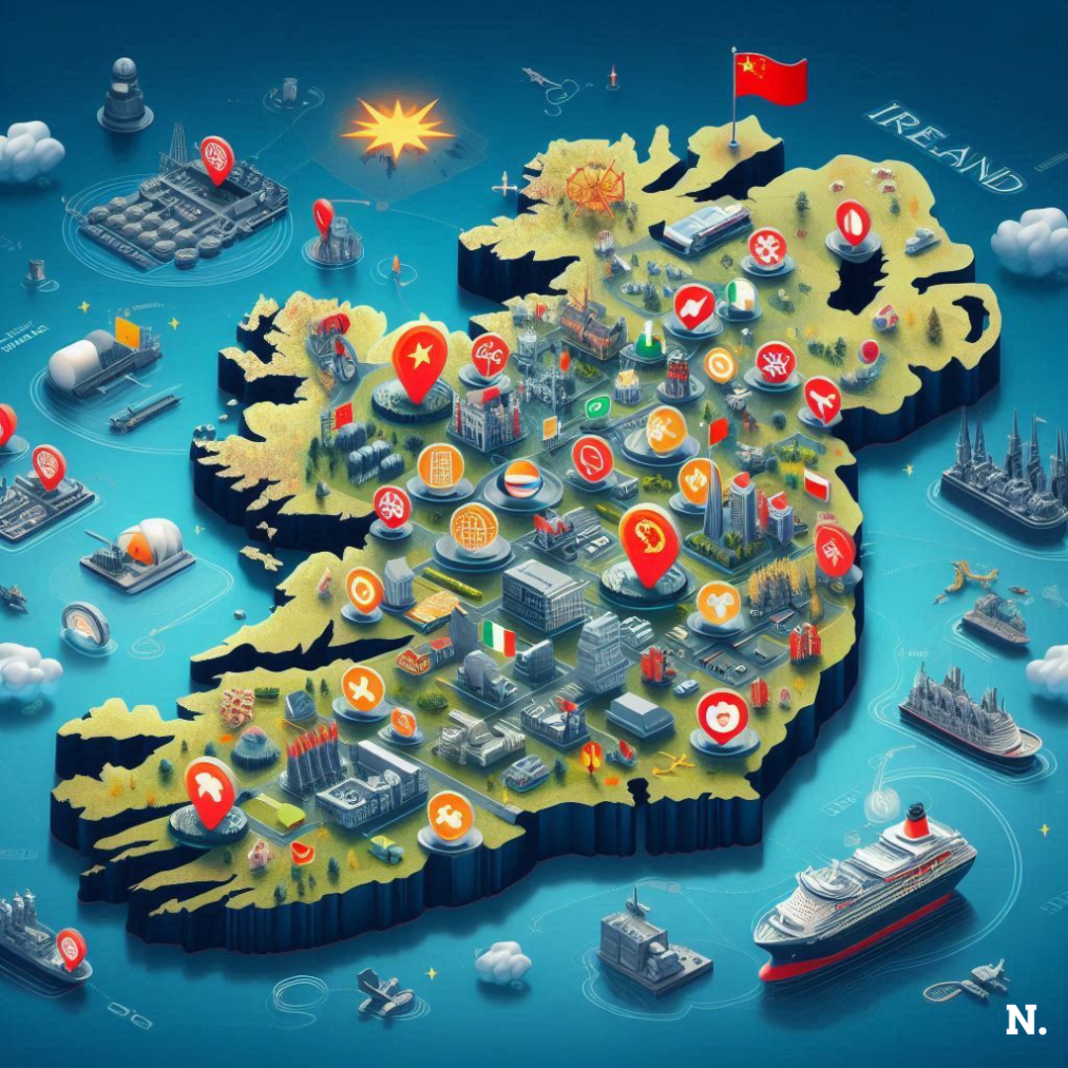The Irish economy has seen significant growth in recent years, and one of the key factors driving this growth is investment from China. There were twenty-five Chinese businesses doing business in the Republic of Ireland in 2020. By 2024, that number has increased to 40. This surge in Chinese investment has sparked discussions about the benefits and potential downsides of this trend.
The Benefits of Chinese Investment in Ireland
For many, the increase in Chinese companies setting up shop in Ireland is a positive development. This influx of investment provides Ireland with an opportunity to diversify its economy. Traditionally, Ireland has been known as the European base for major American technology companies like Apple and Alphabet. However, with more Chinese firms establishing operations in the country, Ireland can reduce its reliance on these US tech giants.
Jobs in a variety of industries may be created as a result of this diversification. As Chinese companies invest in Ireland, they bring along their workforce and business practices. This means more employment opportunities for local residents, which is especially important for communities looking for economic growth.
Chinese firms are also known for investing in infrastructure and development projects. These investments can lead to improved facilities, technological advancements, and increased economic activity in the regions where they operate. In turn, this can benefit the overall economy by generating additional tax revenues and stimulating local businesses.
Concerns Over Human Rights and Reputation
While the economic benefits of Chinese investment are noteworthy, they come with serious concerns about reputational risks. Opponents contend that Ireland’s acceptance of Chinese business operations links the nation to claims of violations of human rights. Some of these companies, like the Chinese clothing firm Shein, have faced widespread criticism for their treatment of workers.
Allegations about the working conditions in Shein’s supply chain have put the company in the spotlight. In May 2023, Shein established its European headquarters in Dublin, which raised eyebrows among human rights activists. The company has been accused of exploiting labor and failing to ensure safe working conditions for those who produce its clothing. Earlier this year, Shein admitted to discovering instances of child labor in its supply chain, further fueling the criticism.
These allegations place Ireland in a challenging position. As the country seeks to attract foreign investment, it must also navigate the complexities of ethical business practices. The association with companies that have faced scrutiny for their treatment of workers can harm Ireland’s international reputation and raise questions about its commitment to human rights.
The Diplomatic Dilemma of Ireland
Ireland finds itself in a diplomatically sensitive situation by welcoming Chinese companies that have been sanctioned by the United States. Two prominent examples are Huawei, a telecoms firm, and WuXi Biologics, a drugs company.
Huawei has made significant contributions to the Irish economy, reportedly generating €800 million (approximately $889 million) annually. The company has established three research and development centers in Ireland, providing jobs and technological advancements. However, Huawei is also a company that has faced serious allegations related to national security. The United States has banned Huawei’s telecom network equipment since 2022, expressing concerns that its technology could be used for espionage. Many Western countries, including the UK, have followed suit, leading to the removal of Huawei components from mobile phone networks.
Meanwhile, WuXi Biologics has invested over €1 billion in a facility located in Dundalk, near the border with Northern Ireland. This investment has generated numerous jobs and bolstered the local economy. However, a bill intended at restricting US corporations’ ability to work with WuXi because of national security concerns was just enacted by the US House of Representatives. This situation adds an additional layer of complexity for Ireland, as it balances economic growth with the potential fallout from its relationships with these Chinese firms.
China’s growing involvement in Ireland brings with it benefits as well as difficulties. While the economic benefits are clear, the reputational risks associated with human rights allegations and diplomatic tensions cannot be overlooked. As Ireland continues to welcome foreign investment, it must carefully consider the implications of its partnerships and the message it sends to the international community.





